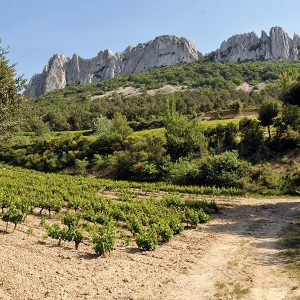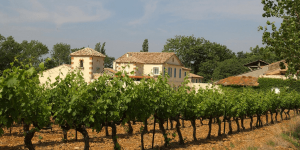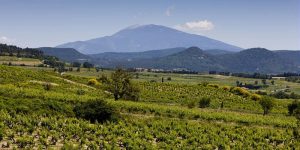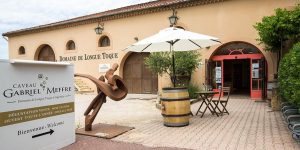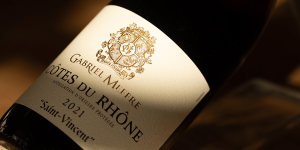Maison Gabriel Meffre is engaged in responsible purchasing practices alongside its suppliers
Asking questions at each stage of production
Making a wine involves various stakeholders throughout the production cycle. With each passing year, we refine our CSR approach and make it more demanding. This has been the topic of several previous articles, on our CSR approach, the lightening of bottles and optimisation of our energy expenditure, for example. Initiatives are also being carried out with our suppliers.
The product lifecycle training has enabled our staff (in Marketing, QSE and Purchasing) to focus on new topics that primarily concern Maison Gabriel Meffre’s suppliers. The glass manufacturers, printers and cardboard suppliers we work with all produce materials, and they in turn work with other suppliers.
Where do the raw materials come from and how are they processed and recycled? Which products are used? It was an opportunity to observe that some of our suppliers have made significant progress in innovative approaches, with responsible R&D, in particular in the area of cardboard materials, glues and glass.
Responsible Purchasing Charter
In 2017, we began by creating a “Responsible Purchasing Charter”. It is intended for all of our stakeholders and enables mutual engagement in areas such as food safety, the environment, social responsibility and business ethics.
In terms of the environment, our commitments involve the following:
- Talking to suppliers and raising their awareness of good environmental practices
- Ensuring they effectively manage pollution and hazardous substances
- Focussing on energy optimisation and water consumption
- Promoting products made with renewable, recyclable and recycled resources, which enable the reduction of waste at source.
By agreeing to the principles of the Charter, our suppliers and subcontractors undertake to work with us to meet our CSR commitments and deploy the resources needed to comply with them. They also undertake to pass on the content of the Charter to all of their own suppliers and subcontractors.
Our suppliers
In 2019, following the product lifecycle training, various actions have been carried out.
Audrey Chaufournier, QSE Manager explains:
We went to see a service provider in charge of recycling glass produced by our ;partner glass manufacturer. We looked at the way in which they sort and process the waste, as we are interested in the future of the product and the way in which the final waste is recovered.”
Maison Gabriel Meffre’s purchasing department also interviewed suppliers of ;labels: ;
We focussed on the source of inks and glues, as well as the impact of products used for manufacturing that can generate waste. We decided to limit the use of colours and hot foil printing on our bottles. Foil printing produces a lot of waste, which we can prevent.”
Lastly, we looked into the lightening of cardboard, by working on reducing its thickness, for example, while ensuring solidity.
This global review has enabled us to confirm that all of the raw materials used by Maison Gabriel Meffre’s suppliers are from Europe, and even countries bordering France (Italy, Spain and Germany). This is an important part of our efforts to limit transport and our carbon footprint.
Attention right from the product design stage
As part of our environmental approach, we have designed the “Inspiration par Gabriel Meffre” range, including printed bottles with the following characteristics:
- No label, no glue
- Organic inks, no heavy metals
- Drying by UV with low energy consumption.
Maison Gabriel Meffre is continuing along its “path of responsibility” with a firm conviction and looks forward to many exciting projects to come!
Rubrics
Découvrez plus d'articles...
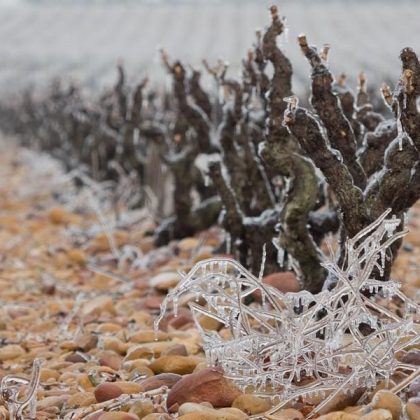
The vineyard and wine cellar in winter
What happens in the world of wine during the winter period? After the hustle and bustle of autumn, the harvests and vinification process, comes winter, a season devoted to maturation and looking after the vines.

In 2018, we will continue to strive to be a Responsible Company!
In this new year, our wish to help build a world that respects both mankind and the environment is as strong as ever. This can be seen through the number of our projects for 2018 that are closely related to our convictions as a Responsible Winery. We’re delighted to be given the opportunity to tell you about them!
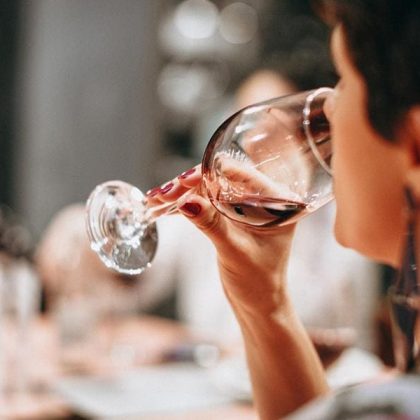
Discovering the art of pairing wine and chocolate
A morsel of white chocolate, Black Forest gâteau, pieces of stem ginger wrapped in chocolate, or Mexican chicken in chocolate sauce—all very appetising, but which wine would you serve with each one? Food and wine pairings factor in a combination of elements, such as the terroir, our powers of concentration, the circumstances of the tasting session, our sense memory and more. We guide you through some of the basic principles of this fascinating world!
